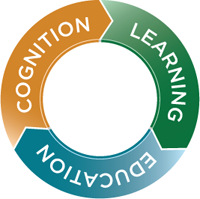
Chapter 08: Process Oriented Guided Inquiry Learning
Editors
Mark A. McDaniel, Regina F. Frey, Susan M. Fitzpatrick, & Henry L. Roediger III
Files
Link to PDF Full Text
Download Figure 1: The Nuclear Atom (PDF) (1.5 MB)
Description
In a POGIL (Process Oriented Guided Inquiry Learning) learning environment, students work cooperatively in self-managed small groups of three or four. The group work is focused on activities that are carefully designed and scaffolded to enable students to develop important concepts, or to deepen and refine their understanding of those ideas or concepts. In addition, the learning environment is structured to support the development of process skills - the important learning skills and interpersonal skills that will promote life-long learning and be of great value in the workplace and in life. The instructor’s role is to facilitate the development of student concepts and process skills, not to simply deliver content to the students.
Document Type
Chapter
ISBN
978-1-941823-00-2 (MOBI), 978-1-941823-01-9 (ePub), 978-1-941823-02-6 (PDF)
Publication Date
9-10-2014
Publisher
Washington University Libraries
City
Saint Louis
Disciplines
Chemistry | Cognitive Neuroscience | Cognitive Psychology | Educational Psychology | Engineering Education | Higher Education | Higher Education and Teaching | Science and Mathematics Education | Teacher Education and Professional Development
Recommended Citation
Moog, R. (2014). Process oriented guided inquiry learning. In M. McDaniel, R. Frey, S. Fitzpatrick, & H.L. Roediger (Eds), Integrating cognitive science with innovative teaching in STEM disciplines [E-reader version] (pp. xxx-xxx). doi: http://dx.doi.org/10.7936/K7PN93HC




Comments
Chapter 8, Integrating Cognitive Science with Innovative Teaching in STEM Disciplines. Chapter DOI: http://dx.doi.org/10.7936/K7PN93HC. Link to complete book available at: http://openscholarship.wustl.edu/books/9/ Chapter includes supplemental PDF file. Complete book available for purchase through Amazon and Apple. For information about alternative versions, please contact digital@wumail.wustl.edu. Arranged for publication, sale, and distribution in electronic and print form by Washington University Libraries. All articles Copyright © 2014 by the individual authors.